Prevent Manotick Plant Loss: Early Soil Nutrient Check
Quick Guide to Healthy Manotick Soil:
- Why Test? Avoid plant loss and wasted money by understanding your soil's unique needs (nutrients, pH).
- Key Nutrients: Learn about NPK (Nitrogen, Phosphorus, Potassium) and their roles.
- Testing Options: Choose between DIY kits for quick checks or Pro Labs for detailed analysis.
- When to Test: Ideal times are Spring (before planting) or Fall (after harvest).
- Best Fixes: Compost is king! Use targeted organic amendments only when tests show a need.
Introduction: Don't Let Your Manotick Garden Get the Blahs!
Hey Manotick gardeners! Ever feel like your garden plot has a serious case of the blahs? You’ve planned your landscaping, picked out beautiful plants, maybe even splurged a little, only to watch them struggle or worse, give up the ghost entirely. It’s enough to make even the most patient Ottawa gardener want to trade their trowel for a TV remote! Gardening in our region, from Manotick down to Barrhaven or out towards Greely, has its unique rewards – vibrant seasons and hardy local flora. But it also comes with challenges, especially when it comes to our diverse and sometimes tricky soils.
The secret weapon to skipping the plant heartache and wasted expense? Know before you grow! This guide is all about preventing plant loss by getting the real dirt on your dirt, literally, through early soil testing. It’s the crucial first step often overlooked, but it makes all the difference between a sad, struggling patch and a stunning, thriving garden oasis you can be proud of. Let’s explore how understanding your soil *before* planting is the key to keeping your plants happy and your garden flourishing.
Why Your Soil Might Be Secretly Sabotaging Your Plants (Especially Around Here!)
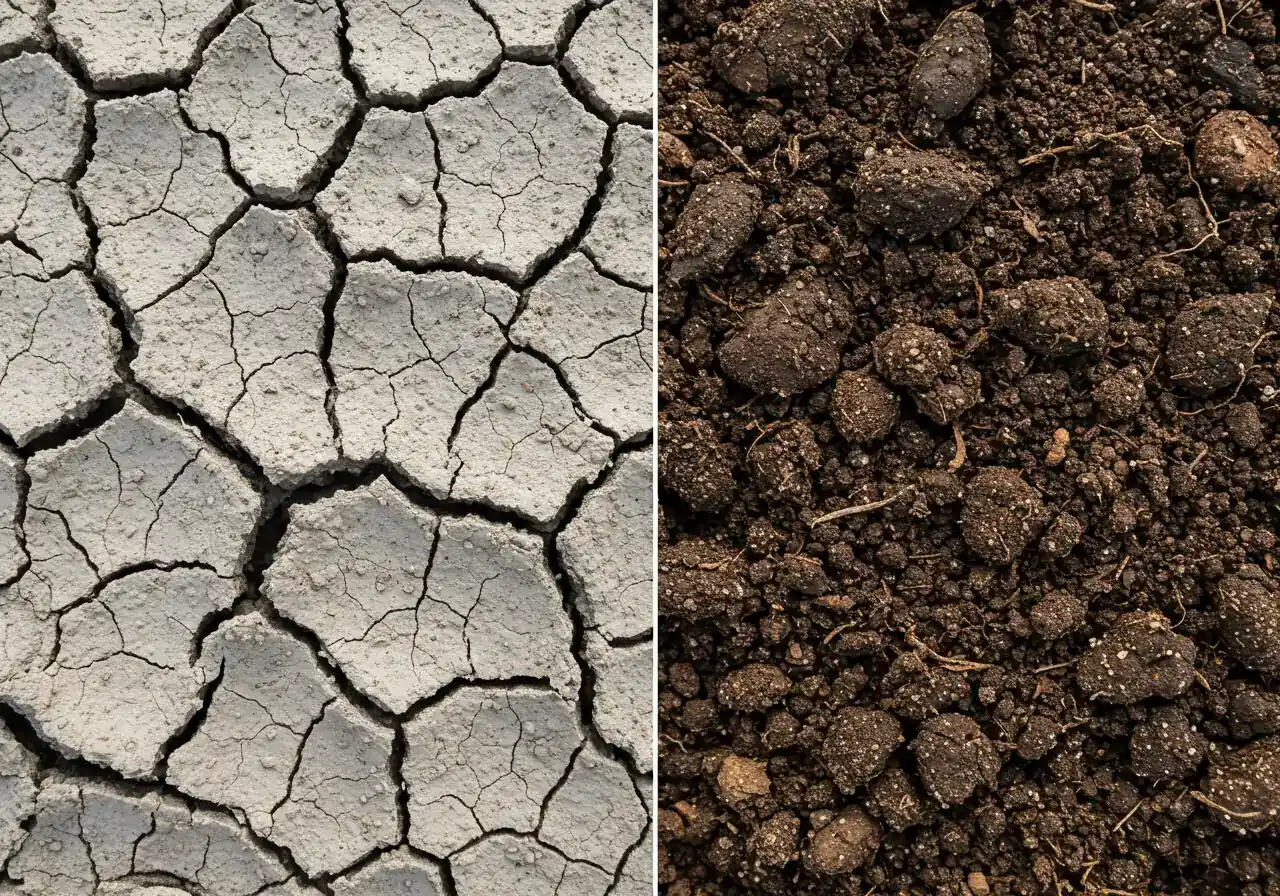
Okay, let's talk dirt. You've picked the perfect spot, bought gorgeous plants, and maybe even given them a pep talk. So why do they sometimes look... well, sad? Like they're staging a silent protest in your flower bed? The culprit might be hiding right under your feet: your soil could be a secret saboteur! Especially around here in Ottawa, our soil can be a bit of a character.
Think of soil as your plant's pantry and foundation all rolled into one. If the pantry is missing key ingredients (nutrients) or the foundation is shaky (poor structure), your plants just can't thrive. Many parts of Ottawa, from Nepean right out to Winchester, deal with heavy clay soil. Clay isn't all bad – it holds nutrients well. But oh boy, can it get compacted! This means water doesn't drain properly, leading to soggy roots, which plants absolutely hate. It’s a perfect setup for root rot, a common garden tragedy. Understanding this is the first step; you can find practical Winchester Clay Soil Root Rot Prevention Tips to help combat this very issue.
Then there's the nutrient balance and pH level. Your soil might look perfectly fine, dark and rich, but it could be lacking essential goodies like nitrogen or phosphorus, or the pH might be too high or low, locking up the nutrients that *are* there. Plants get stressed when they aren't getting what they need or their roots are struggling, making them more vulnerable to pests and diseases. Keeping things healthy involves multiple steps, like ensuring you Keep Greely Garden Tools Sharp & Clean to Prevent Disease and knowing when to perform tasks like learning How & When in Kars to Divide Hostas in Fall to Prevent Crown Rot.
Our Ottawa climate adds another layer, with freeze-thaw cycles potentially making compaction worse. Proper watering becomes extra crucial – not too much, not too little. That's why managing your irrigation, including things like timely Osgoode Sprinkler System Winterization & Blow Out, is part of the bigger picture of soil and plant health.
So, how do you stop the guesswork and potential plant drama? Soil testing! It’s like a check-up for your garden's foundation, revealing exactly what's going on down there – pH, nutrient levels, soil type. Knowing this lets you make smart choices, amend the soil correctly *before* you plant, and give your greenery the best possible start. If tackling soil problems feels overwhelming, remember there are professional Landscaping and Yard Care Services available to help get your garden soil just right. You can also check our reviews on Google.
Meet the Soil Superstars: NPK and the Micronutrient Crew
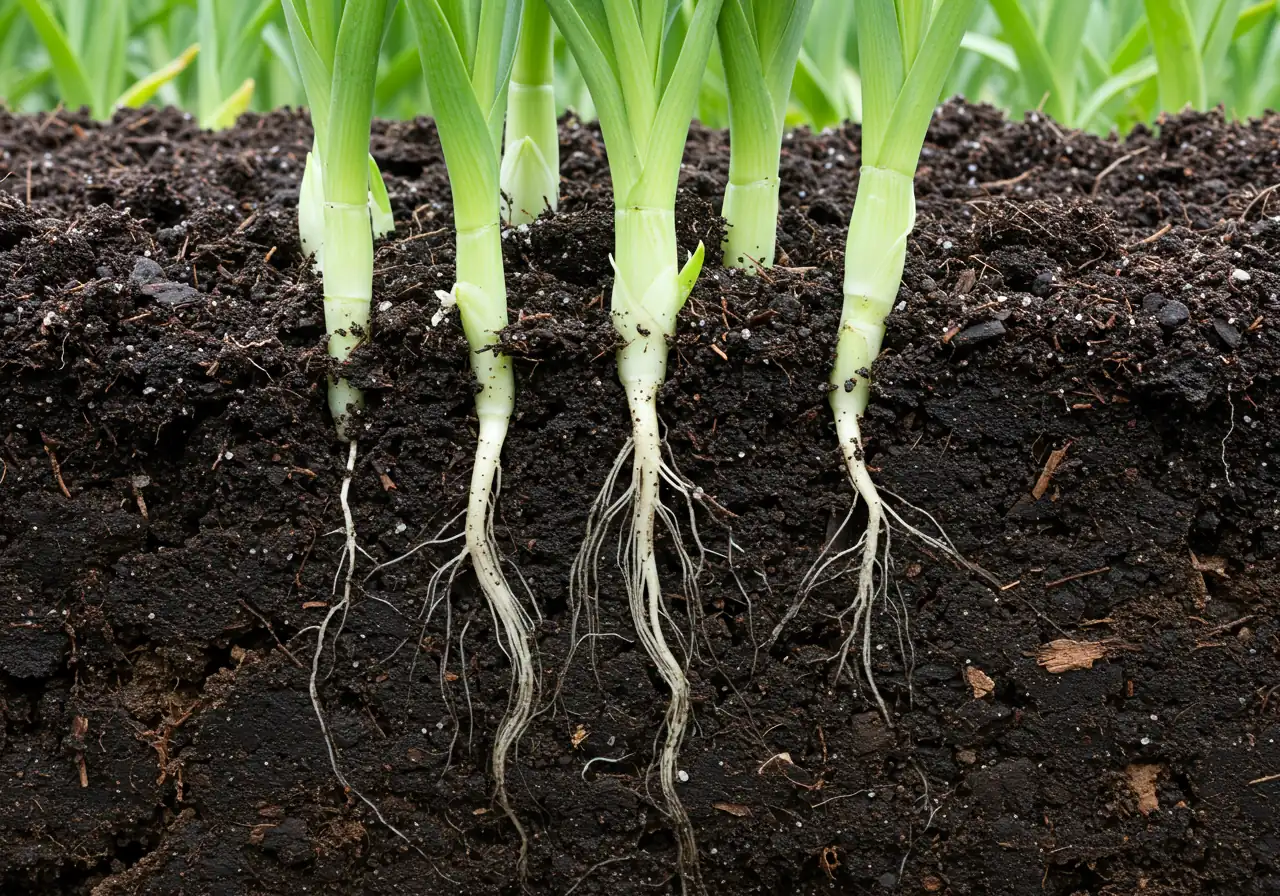
Alright, let's dish the dirt on what makes plants really happy – their food! Just like us, plants need nutrients to grow big and strong, and their main pantry is the soil. Think of the most important nutrients as the headliners at a rock concert: the "Big Three," also known confusingly as NPK: Nitrogen (N), Phosphorus (P), and Potassium (K). You'll see these three letters plastered on just about every fertilizer bag, and for a very good reason! They're the macronutrients, meaning plants need them in the largest quantities to thrive.
Here’s the lowdown on what each superstar does:
- N is for Nitrogen: Think "Up!" Nitrogen is the fuel for fantastic leafy growth and that gorgeous deep green colour. It's like the protein shake for your plants, helping them build bigger leaves and stronger stems. If your plant looks pale and kinda puny, it might be shouting (quietly, of course) for more Nitrogen.
- P is for Phosphorus: Think "Down and Around!" Phosphorus is the root champion, flower booster, and fruit producer. It helps establish a strong foundation below ground and provides the energy needed for blooming and setting fruit. Strong roots mean happy plants! Good soil preparation ensures phosphorus is available.
- K is for Potassium: Think "All-Around Health!" Potassium is like the multi-vitamin for your plants. It helps them manage water efficiently, strengthens them against diseases, pests, and stresses (like coping with our distinct Ottawa seasons!), and generally keeps all their internal systems running like a well-oiled machine. It’s crucial for overall plant toughness.
But wait, the band doesn't stop there! Beyond the Big Three, we have the equally important, though less demanded, "Micronutrient Crew." These are elements like iron, manganese, zinc, copper, and boron. Plants only need tiny, trace amounts of these guys, but they play vital supporting roles. Think of them as the essential stage crew making sure the NPK stars can shine – they help with everything from chlorophyll production to activating enzymes.
Knowing your soil's nutrient profile – both the macros and micros – is why soil testing is so valuable. A gardener in Metcalfe growing hungry tomatoes will have different soil nutrient needs than someone cultivating shade-loving hostas. Feeding your plants the right diet prevents stress and promotes vigorous growth, enhancing your property transformations.
Once a soil test reveals what's lacking (or maybe even what you have too much of!), you can start amending smartly. Often, adding good quality compost is a fantastic first step. Sometimes, though, a more targeted fertilizer might be necessary. Remember that good garden hygiene supports nutrient uptake too; clearing out dead leaves and weeds ensures your amendments actually reach your plants. Whether it's prepping beds with a thorough Osgoode Property Cleanup Service or ensuring your local space is ready via a Metcalf Yard Cleanup Service, a clean start matters. Tidying up, even in tight urban spots with a City Yard Cleanup Service, removes competition for those precious nutrients. Ensuring good soil contact after amending is also key, something a detailed preparation like a Marionville Property Cleanup Service facilitates. If balancing nutrients and handling the overall yard work feels daunting, professional Landscaping and Gardening Support Services can lend expert help to get your Ottawa garden flourishing by ensuring your soil superstars have everything they need!
Getting the Dirt: DIY vs. Pro Soil Testing in the Capital Region
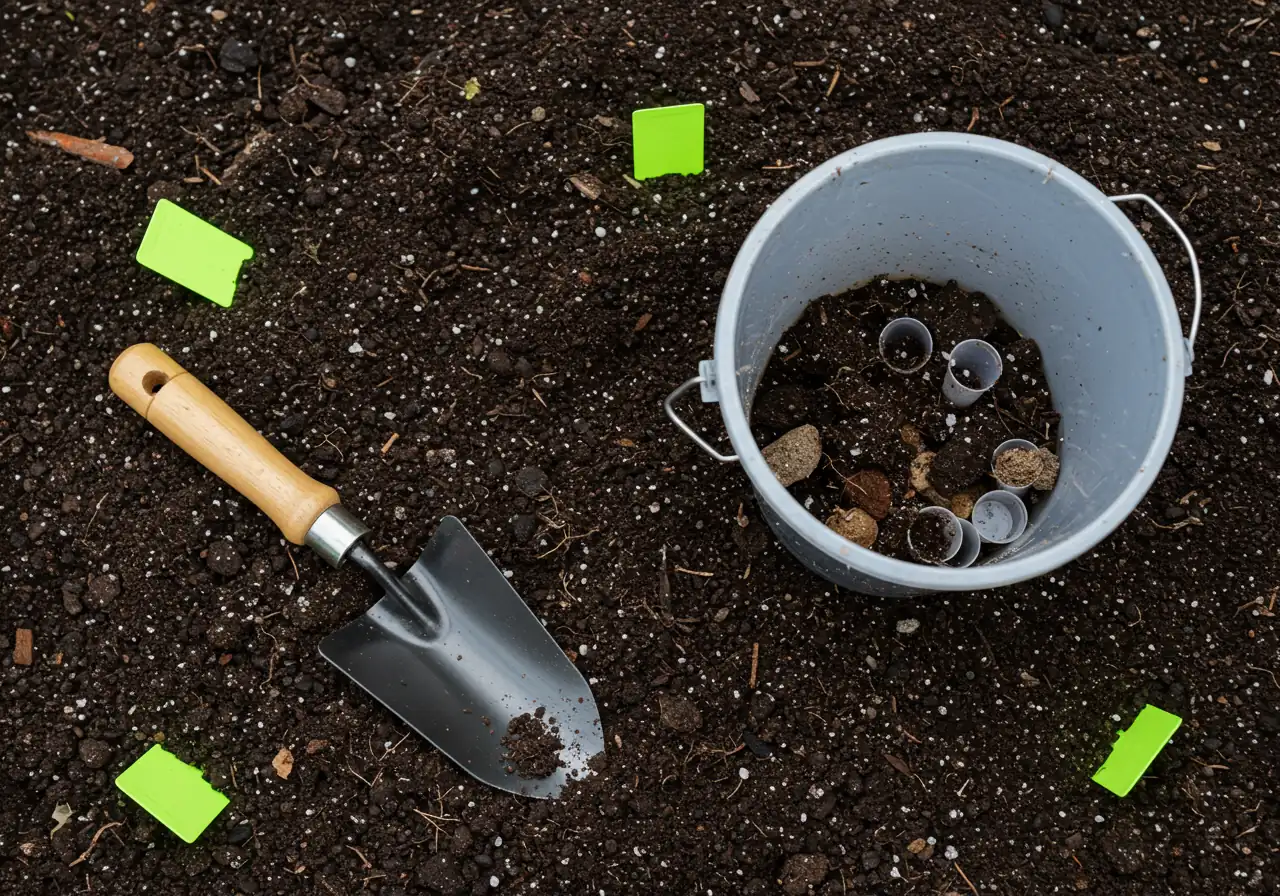
So, you're ready to play soil detective and figure out what’s *really* going on beneath your plants? Smart move! Understanding your soil is the key to a happy garden. But how do you get this crucial info? You’ve basically got two paths: roll up your sleeves with a Do-It-Yourself (DIY) kit or call in the experts for professional lab testing. Let's break down the pros and cons, Ottawa-style.
DIY Soil Test Kits: The Quick Check-Up
Think of DIY kits like those home health tests – convenient and give you a basic idea fast. You can usually grab these at garden centres. They typically involve mixing soil with water and some chemicals, then comparing colour changes to a chart to estimate pH and maybe the Big Three nutrients (NPK).
- Pros: Generally inexpensive, quick (results in minutes or hours), readily available. Good for a ballpark figure or monitoring changes between more thorough tests.
- Cons: Accuracy can be iffy. Results are often broad (e.g., "low," "medium," "high"), don't usually test for micronutrients, organic matter, or texture. User error is possible. Might identify a problem, but not the best fix.
Best For: Quick checks, basic pH monitoring, established healthy gardens.
Professional Lab Testing: The Full Physical
Sending your soil sample to a professional lab is like getting a full diagnostic workup. These labs use sophisticated equipment for highly accurate results.
- Pros: Much more accurate and detailed. Provides precise pH, specific nutrient levels (including micros), organic matter %, and sometimes texture. Reports often include tailored amendment recommendations based on your goals. Gold standard for problem-solving.
- Cons: Costs more, takes longer (usually 1-2 weeks for results). Requires careful sample collection and shipping.
Best For: New gardens, diagnosing problems, specific nutrient needs (veggies!), before major landscaping or investing in expensive plants. Essential for services like sod installation.
External Resource: Consider labs recommended by the Master Gardeners of Ottawa-Carleton or OMAFRA.
How to Collect a Soil Sample Like a Pro
Whether DIY or Pro Lab, a good sample is crucial for accurate results. Aim for a *representative* sample of the area.
- Clean Up First: Clear surface debris (mulch, leaves, weeds). Ensure you're sampling soil, not top dressing. A targeted Metcalf Garden Clean Up Service or Ottawa Garden Clean Up Service can help prepare the area.
- Tools Ready: Use a *clean* plastic bucket and a clean trowel/shovel (avoid galvanized/brass).
- Dig In (Strategically): For a garden bed/lawn, take 5-10 small samples from different spots within the zone. Dig down about 15 cm (6 inches). Take a slice from the side of each hole.
- Mix it Up: Combine all small samples in the bucket. Remove stones/roots. Break clumps and mix thoroughly. This is your representative sample.
- Prepare for Testing: Air dry if needed (follow instructions). For a lab, package ~1-2 cups as directed. For DIY, use the specified amount. Proper sample collection is part of good property clean up practice.
Dealing with soil issues and amendments can feel like a big job. If you're looking at the results and wondering what the next steps are, remember that professional help is available. Teams like ours understand Ottawa's soils and can guide you. You can learn more About Us and how we approach creating healthy landscapes, starting from the ground up. Properly preparing your site, perhaps even with a thorough Metcalf Property Cleanup Service before amending, sets the stage for success. Knowing your soil truly is the first step to a gorgeous, thriving garden!
Typical Nutrient Needs (Example)
Note: Actual needs vary greatly based on plant type and existing soil levels. Test first!
The Gardener's Calendar: When to Test Your Soil in Manotick and Beyond
Alright garden gurus, let's talk timing! Just like knowing *when* to plant your tomatoes is crucial, knowing *when* to test your soil can make a big difference in your gardening success. Trying to figure out the nutrient levels or pH mid-season when your plants are already looking peaky is like trying to read a recipe *after* you’ve already baked the cake – a bit too late! So, when is the best time to peek under the hood in Manotick, Russell, Embrun, or anywhere else in our lovely Ottawa region?
Spring Testing (Ideal)
Test *before* planting. Gives time to amend based on results for the upcoming season. Soil is settled after winter. Great after an Ottawa Property Cleanup Service.
Fall Testing (Also Great)
Test after harvest. Reveals nutrient use over summer. Allows amendments (like lime) time to work over winter. Easier after a Property Clean Up.
Frequency?
Every 2-3 years for established, healthy gardens. Annually if starting new, having problems, growing heavy feeders (veggies), or after major landscaping. Relevant after specific work like a Metcalf Garden Clean Up Service.
Avoid Testing When...
Avoid immediately after fertilizing or adding large amounts of amendments, or when soil is waterlogged or frozen. Wait a few weeks for things to settle.
Understanding your soil test results and deciding on the right course of action can sometimes feel a bit complex. If you get your results back and want a second opinion or help planning your soil improvement strategy, don't hesitate to reach out. You can even provide Estimate Feedback if you're considering professional help with amendments or other yard projects. We respect your data; you can review our commitment to it in our Privacy Policy. Testing at the right time sets you up for a season of happy plants!
Feeding Your Soil Right: Amendments and Eco-Friendly Fixes
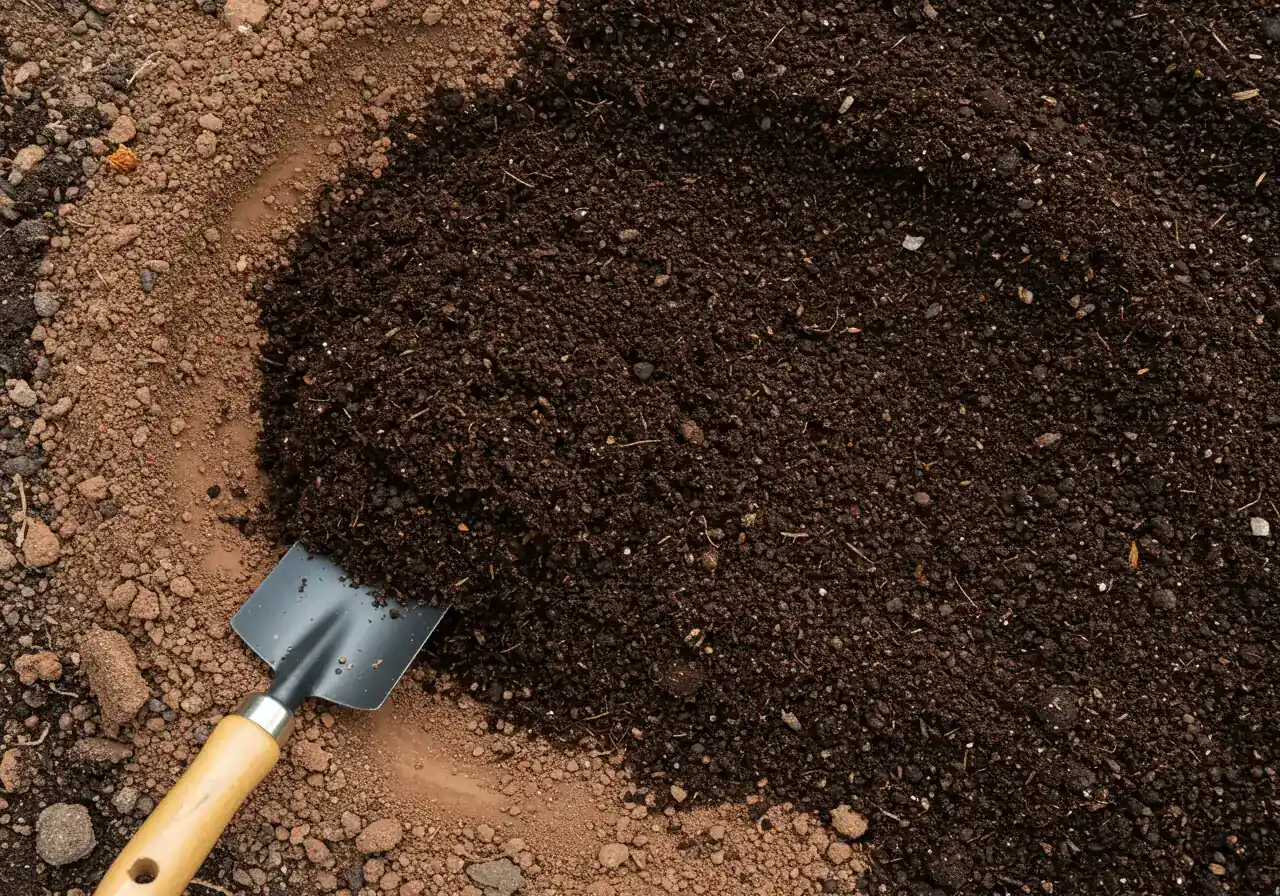
Okay, you've bravely faced the soil test results! Now what? Don't panic if the report looks a bit like a secret code only garden gnomes understand. Think of it as your soil's very own shopping list, telling you exactly what it needs to whip up a feast for your plants. Feeding your soil right, especially here in the diverse conditions around Ottawa, is less about becoming a chemist overnight and more about giving it the natural goodies it’s craving. Let’s dig into the best earth-friendly ways to amend your soil and make your garden sing.
Compost is King (Seriously, Bow Down)
If there’s one superhero amendment, it’s compost. Good quality compost – whether you make it yourself (go you!) or buy it – is like a power-packed smoothie for your soil. It does wonders for structure, helping break up that stubborn Ottawa clay or making sandy soil hold onto water better. Plus, it slowly releases nutrients and invites all sorts of beneficial tiny critters (microbes) to the party in your soil. Aim to spread a layer of 1-2 inches across your garden beds each spring or fall. You can often find fantastic compost or properly aged manure from local sources – sometimes checking with farms or garden suppliers near areas like Winchester or Kenmore can yield great results. Applying amendments is much easier when the beds are clear; a service like a Marionville Garden Clean Up Service can ensure you have a clean slate to work with, maximizing soil contact. For tips on making your own, check the City of Ottawa's composting resources.
Other Organic Goodies for Your Soil's Buffet:
- Aged Manure: Another fantastic soil builder. The key word here is *aged* – fresh manure can be too strong and "burn" plants. Once properly rotted, mix it in just like compost.
- Leaf Mold: Don't bag up those fall leaves! Rake them into a pile, let them decompose for a year or two (patience, gardener!), and you'll have 'black gold' – an amazing soil conditioner that's totally free.
- Cover Crops: Think of these as green manure. Planting things like clover, buckwheat, or fall rye and then turning them into the soil before they set seed adds valuable organic matter and can even help suppress weeds.
Targeted Eco-Fixes (Handle With Care!):
Sometimes your soil test might point to a specific issue, like pH being way off or a particular nutrient running low.
- pH Adjustment: If your soil is too acidic (low pH), adding calcitic or dolomitic lime *gradually* can raise it. If it's too alkaline (high pH), elemental sulfur or adding acidic organic matter like peat moss or pine needles can help lower it over time. The key is *slow and steady*. Drastic changes can shock your soil ecosystem.
- Specific Nutrients: Test shows low phosphorus? Bone meal is an organic option. Need nitrogen? Try blood meal, alfalfa meal, or fish emulsion. Lacking potassium? Greensand or kelp meal can help. *Important:* Only add these targeted fixes if your soil test *specifically* shows a deficiency. Throwing random nutrients around isn't helpful and can even harm your plants and the environment. Proper material selection based on tests is crucial.
How to Apply Amendments:
You don't necessarily need to till everything deeply. Gently forking amendments into the top few inches of soil works well for new beds, often part of garden installation. For established gardens, simply spreading the compost or other materials on top (top-dressing) is often best. Earthworms and natural processes will gradually mix it in, minimizing disturbance to the existing soil life. Water lightly after applying amendments to help them settle in. Remember, amending garden beds is quite different from maintaining turf; for lawn-specific advice, check out tailored Lawn Care Tips and Services.
Protecting Our Precious Waterways:
Everything we add to our yards can potentially affect local streams, rivers like the Rideau, and ultimately our groundwater. Choosing organic amendments significantly reduces the risk of harmful chemical runoff compared to synthetic fertilizers. Avoid applying amendments right before a forecast of heavy rain. Responsible gardening includes being mindful of our downstream neighbours and environment, like those supported by the Rideau Valley Conservation Authority. We believe in acting responsibly and transparently in our work, a commitment reflected in our Clean Yards Privacy Policy. Ensuring your entire yard is tidy before amending, perhaps after a Marionville Area Yard Cleanup Service, also helps prevent loose materials from washing away during the next downpour.
Get these steps right, building your soil health patiently, and your plants will reward you with lush growth. They might even mentally send you a big Thank You! Healthy soil is the foundation of a truly thriving, eco-friendly Ottawa garden.
HIGHLIGHT BOX: Ottawa Soil Secrets for Happy Plants
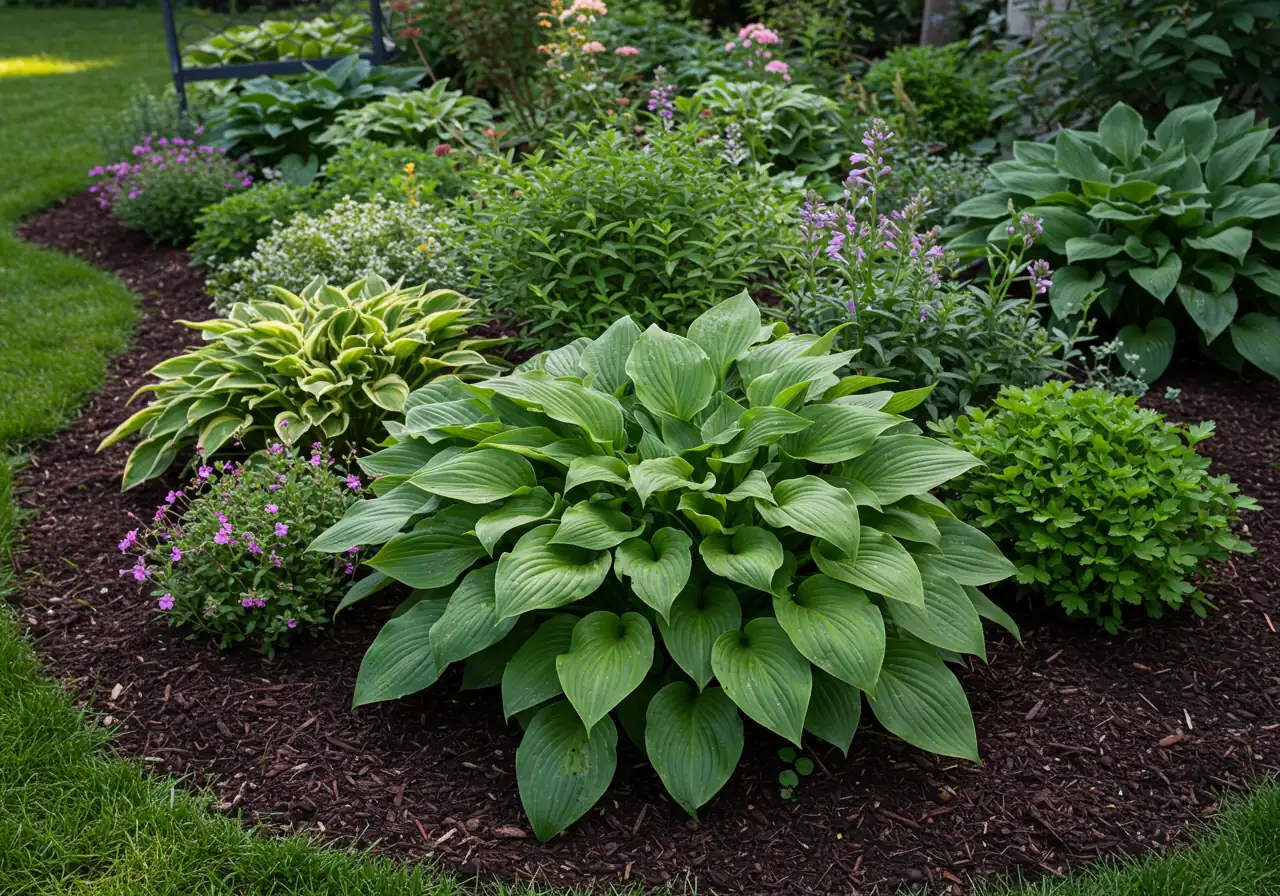
So, you want the inside scoop on keeping your Ottawa plants smiling? Forget whispering sweet nothings (unless you enjoy that sort of thing); the real secret is right under your feet! Here are the quick takeaways for happy soil and even happier plants:
- Test Before You Invest: Don't guess, test! Knowing your soil's pH and nutrient levels *before* planting or amending saves heartache and money. Whether you're in Barrhaven or near the Rideau River, understanding your starting point is vital for Ongoing Garden Maintenance Practices. Get the dirt on your dirt!
- Compost is Your Garden's Best Friend: Seriously, this stuff is magic. Whether you've got heavy clay common in parts of Ottawa or sandier patches, compost improves soil structure, adds nutrients slowly, and boosts beneficial microbes. Choosing quality amendments is key; explore tips on Smart Material Selection for Your Garden to ensure you're adding the good stuff.
- Fix Problems Gently and Organically: Soil test showed wonky pH or low nutrients? Use targeted *organic* amendments like lime, sulfur, bone meal, or kelp meal *only if needed* and apply them gradually. Follow up with good practices like proper Professional Mulching and Edging to protect your improved soil, retain moisture, and keep weeds down.
- Timing is Everything (Almost!): The best times to test your soil are spring (before planting) or fall (after cleanup). Just make sure you're sampling actual soil, not last year's mulch or leaves! A clear testing area is essential; sometimes a specific cleanup like a Marionville Garden Clean Up Service ensures you get an accurate sample from the right spot.
- Healthy Soil = A Happy, Tidy Garden: Great soil health makes plants more resilient and your whole garden look better. Keeping the area tidy reduces competition for nutrients and water. Even small urban spaces benefit enormously when a proper City Garden Clean Up Service clears debris, allowing soil and plants to breathe and thrive.
FAQ: Your Manotick & Ottawa Soil Questions Answered
Ah, the infamous Ottawa clay! It's not *all* bad news – clay actually holds onto nutrients quite well, which is a plus. But yes, that heavy texture, common in areas like Manotick or Greely, can lead to compaction (squished soil) and poor drainage. This means soggy roots, which most plants absolutely hate! The key isn't trying to dig it all out (your back will *not* thank you!). Instead, focus on *improving* it over time. Your superhero here is organic matter! Regularly adding generous amounts of compost, aged manure, or leaf mold year after year works wonders. These goodies gradually loosen the clay structure, improve drainage, and make it easier for plant roots to explore. Think patient progress, not an overnight miracle. Also, try to avoid working the soil when it's super wet, as that can make compaction worse. For quicker results without the heavy digging, building raised garden beds filled with good soil mix is another fantastic option.
That's a really smart question! Soil testing is *especially* important in newer developments, like you find in parts of Barrhaven or Nepean. Why? Because during construction, the original topsoil is often removed or buried. What's left behind can be heavily compacted subsoil, construction debris, or low-quality fill dirt. It might be lacking essential nutrients, have a weird pH, or be almost impossible for roots to penetrate. Testing takes the mystery out of it! It tells you exactly what kind of foundation (or lack thereof!) you're starting with *before* you spend your hard-earned cash on beautiful plants that might struggle. It helps you figure out if you need to bring in truckloads of topsoil, seriously amend what you have, or maybe – just maybe – you got lucky! Don't guess when it comes to your garden's base – test!
Going green in the garden? We love it! The most earth-friendly way to improve your soil usually starts with the organic superstars: compost, properly aged manure, and leaf mold (nature's free gift!). These amendments feed the beneficial microbes in your soil, improve its structure (vital for dealing with our Ottawa freeze-thaw cycles and sometimes heavy rains), and slowly release nutrients. They build healthy soil naturally. If your test shows a specific issue, like the pH being too high or low, or a particular nutrient deficiency, look for natural fixes. Lime can raise pH, sulfur or acidic materials like pine needles can lower it (do this gradually!). Bone meal adds phosphorus, blood meal adds nitrogen, kelp meal adds potassium. But *only* add these targeted helpers if your test clearly shows they're needed – tossing things in randomly isn't eco-friendly. The best long-term green strategy involves consistent ongoing garden maintenance focused on boosting organic matter year after year. Consider joining the Ottawa Horticultural Society for more local tips.
Good question! For a straightforward veggie patch, especially if you're starting fresh in areas like Greely or Osgoode, you *might* be okay just starting with adding a good few inches of quality compost. Compost is amazing and fixes a lot of soil woes! However, keep in mind that vegetables can be *very* hungry plants. They pull a lot of nutrients from the soil to produce those tasty tomatoes or crunchy cucumbers. If you want the best possible harvest, or if your plants seemed a bit weak last year, doing a soil test is a smart move. Even a good quality DIY kit that checks pH and the main nutrients (NPK) can be helpful. A professional lab test gives you the most detailed picture and specific recommendations. Think of it this way: a small investment in testing can lead to a much bigger payoff in delicious, home-grown veggies! If you're unsure about interpreting results or next steps, feel free to contact us for personalized advice.
Excellent point – small spaces deserve great soil too! Even if you're gardening in containers on a balcony or have a tiny urban front garden, getting a good soil sample is doable and worthwhile. You still want a *representative* sample of the soil your plants are actually growing in. For a container or a very small bed, use a clean trowel to take small scoops of soil from 3 to 5 different spots within that area. Make sure to dig down a few inches where the roots will be. Collect all these little scoops into a clean plastic bag or bucket. Mix them together really well – this combined mix is your sample! You usually only need about a cup or two of this mixed soil for the test kit or lab. The key is just getting a blend from different parts of that small growing zone. If your tiny city space is cluttered and needs clearing before you can even get to the soil, arranging for a city property cleanup service can make sampling much easier.
High five! Taking action on your soil test results is a huge step. So, what’s next? Maintaining soil health is an ongoing process, not just a one-time fix. The best thing you can do is keep feeding the soil life by adding more organic matter each year – a top-dressing of compost in the spring or fall is perfect. Using mulch (like shredded bark, wood chips, or straw) on the soil surface is also crucial. Mulch helps conserve moisture, prevents weeds from stealing nutrients and water, protects the soil from erosion and temperature swings, and eventually breaks down to add more organic matter. Try to avoid walking on your garden beds whenever possible, especially when the soil is wet, as this causes compaction. Pay attention to how your plants are growing; they're often the best indicators if something is going wrong. Regular, thoughtful care is key – adopting a consistent routine, much like the approach taken with a professional city garden maintenance service, helps keep your soil happy and productive season after season. Our standard terms and conditions apply to all our services aimed at keeping your garden healthy.
Conclusion: Grow Gorgeous Gardens in Manotick – Start with the Soil!
So there you have it, fellow Manotick and Ottawa area garden enthusiasts! We've dug into the nitty-gritty and hopefully shown that the secret to a truly thriving, gorgeous garden isn't some mystical green thumb magic – it’s all about starting with healthy soil. Understanding what’s happening beneath your feet prevents those sad, wilted plant scenarios and saves you frustration (and cash!). Getting your soil right means happier plants, more beautiful landscaping results, and less guesswork, whether you're planting petunias in Manotick or rambling roses in Richmond (even after a big Ottawa yard cleanup service).
Ready to unlock your garden's full potential? Don't let your soil remain a mystery! Take the first step: grab a simple DIY soil test kit on your next garden centre run or read up a bit more on soil amendments. Knowledge is power, after all!
Feeling like you'd rather leave the soil science to the pros or need a hand with the heavy lifting? We're here to help: Our team offers expert soil testing and tailored recommendations, plus full landscaping and garden care services designed for our unique Ottawa region soil conditions. Let’s build your dream garden together, starting with that crucial foundation – the soil! Happy gardening!

